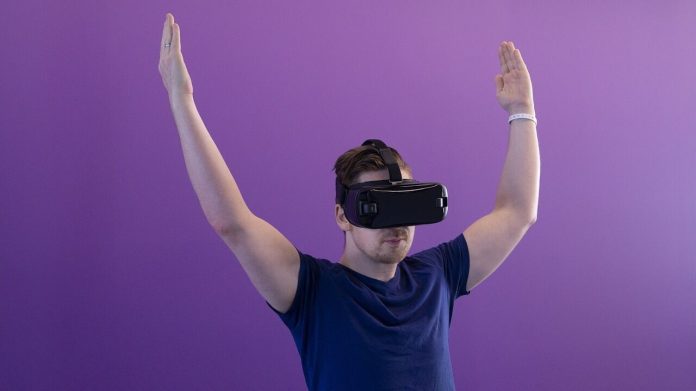When you think about healthcare, you might imagine a bustling hospital or a quiet doctor’s office. But what if your treatment could happen right from the comfort of your own home?
What is Virtual Outpatient Treatment?
In simple terms, virtual outpatient treatment in Ohio means receiving medical care, therapy, or follow-up services remotely. Instead of heading to a clinic, you connect with healthcare professionals online. This could involve video calls, online platforms, or even wearable devices that monitor your health in real time. It’s a way to bridge the gap between traditional in-person care and the flexibility of staying at home.
This approach isn’t just for minor check-ups or quick consultations. Virtual outpatient care can include physical therapy, addiction treatment, mental health counseling, chronic disease management, post-surgery follow-ups, and more. Healthcare providers can tailor these services to your specific needs, ensuring you’re cared for just as well as if you were sitting in their office.
Why is This Approach So Popular?
If you’ve ever spent hours in a waiting room or rearranged your day for an appointment, you’ll know how frustrating it can be. Virtual outpatient care eliminates many of these issues. But convenience isn’t the only reason people are choosing this method.
Time-saving – No need to commute or wait for your turn. Your healthcare team comes to you at the scheduled time.
Comfortable environment – Being treated at home can make a big difference, especially if you’re managing anxiety, mobility issues, or chronic pain.
Personalized care – Virtual platforms allow for one-on-one attention without the distractions of a busy clinic.
Accessible to more people – Rural areas, those with limited transportation, or individuals with disabilities can all benefit from better access to care.
Cost-effective – Virtual care often reduces costs for both patients and providers. You save on travel, and clinics can cut down on overhead expenses.
Who Can Benefit from Virtual Outpatient Treatment?
The beauty of this approach is its versatility. Virtual outpatient care can work for a wide range of people and health conditions. For example:
- Mental health support – Therapy sessions are just as effective online as they are in person, and you can do them from a place where you feel safe and relaxed.
- Post-surgical recovery – Doctors can monitor your healing process through video check-ins or connected devices, ensuring you’re on track without the need for constant trips to a clinic.
- Addiction recovery – For those navigating recovery from addiction, virtual outpatient treatment provides ongoing therapy, counseling, and support without the need to attend in-person sessions, which can feel daunting for some.
- Chronic condition management – For ongoing illnesses like diabetes or hypertension, virtual care allows regular check-ins and monitoring, helping you stay in control of your health.
- Physical therapy – Virtual sessions can guide you through exercises with real-time feedback, making it easier to stick to your recovery plan.
- General health check-ups – Routine follow-ups, medication reviews, and general advice can all be handled virtually without disrupting your day.
This list is far from exhaustive, but it gives a sense of how adaptable virtual treatment can be. If your care doesn’t require physical procedures, there’s a good chance it could be done virtually.
What About the Human Connection?
One of the biggest concerns people have about virtual healthcare is losing the personal touch. It’s a valid point—after all, healthcare isn’t just about fixing a problem; it’s about feeling supported and understood.
The good news is that many healthcare providers are finding ways to maintain that connection. Video calls allow for face-to-face interaction, and many platforms are designed to foster communication. Some even offer messaging features, so you can ask questions or share updates between sessions.
Providers are also trained to make virtual interactions as engaging and compassionate as possible. They understand that trust and empathy are key, whether you’re in the same room or speaking through a screen.
Is It as Effective as In-Person Care?
In many cases, yes! Studies have shown that virtual outpatient treatment can be just as effective as in-person care for certain conditions. For example, mental health therapy, chronic disease management, and post-operative follow-ups often see similar outcomes.
That said, there are limitations. Some treatments require hands-on procedures or specialized equipment, which can only be done in person. However, virtual care often works well as a complement to traditional methods, giving you more options and flexibility.
What You’ll Need to Get Started
If you’re considering virtual outpatient care, setting up is easier than you might think. Here’s what you’ll typically need:
- A reliable internet connection – This ensures smooth video calls and uninterrupted communication.
- A device with a camera and microphone – Most people use a smartphone, tablet, or computer.
- A quiet, private space – For sensitive conversations or therapy sessions, choose a location where you feel comfortable speaking openly.
- Any additional equipment – Depending on your treatment, you might need specific tools, such as a blood pressure monitor or wearable health tracker.
Once you have these basics in place, your healthcare provider will guide you through the rest.
Looking Ahead: The Future of Virtual Healthcare
It’s clear that virtual outpatient care isn’t just a temporary trend—it’s a fundamental shift in how healthcare is delivered. As technology continues to advance, we can expect even more seamless and innovative options.
Imagine AI-assisted diagnostics, wearable devices that provide instant updates to your doctor, or virtual reality tools for physical therapy. While these might sound futuristic, they’re already in development and could make virtual care even more effective.
But at its core, this approach will always be about giving you more control over your health. By removing barriers and making treatment more accessible, virtual outpatient care empowers you to take an active role in your wellbeing.
Ready to Explore Your Options?
If you’re thinking about virtual outpatient treatment, why not take the first step and talk to your healthcare provider? They can help you determine if it’s the right fit for your needs and guide you through the process.
Healthcare is evolving, and virtual outpatient care is opening up opportunities that once seemed impossible. Whether you’re managing a chronic condition, recovering from surgery, or simply looking for more convenient options, this approach offers a way to heal on your terms.










